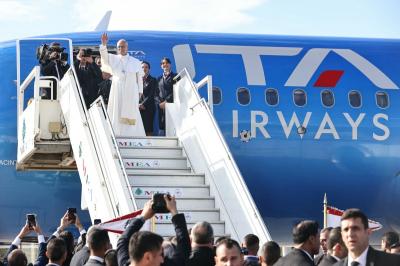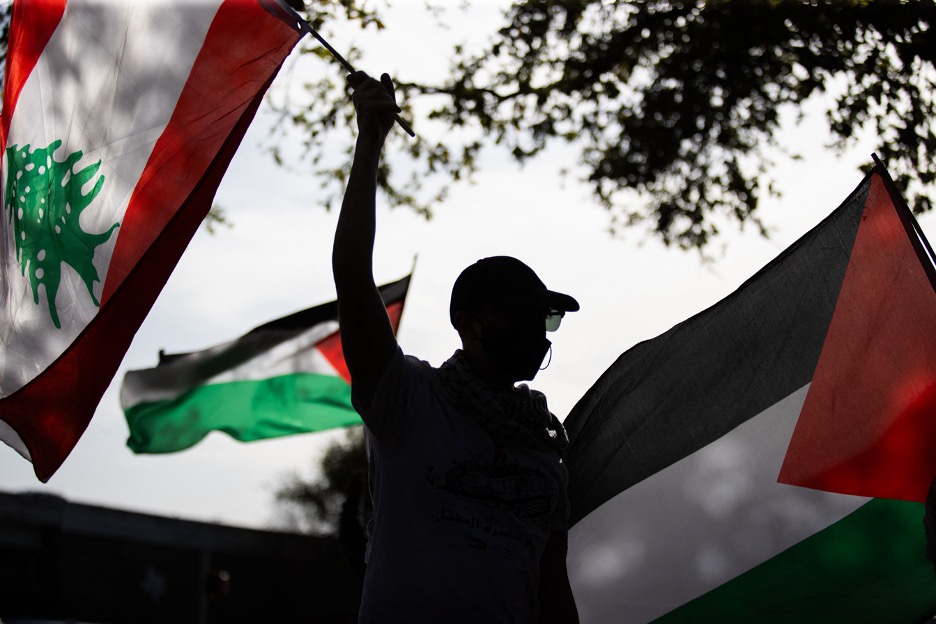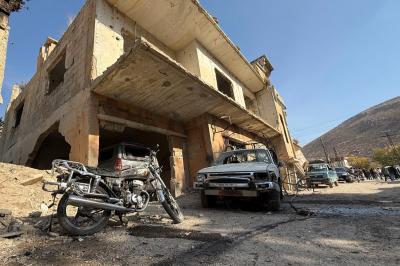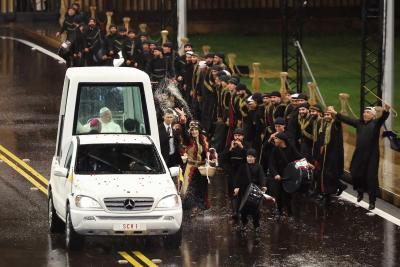Over time, the consequences of “Al-Aqsa Flood” are becoming increasingly apparent—a campaign supposedly aiming at, among other things, recreating the scene of David and Goliath in a reversed battle, led by a weak Goliath against a tyrannical David. While the planners and executors succeeded in the initial phase of Al-Aqsa Flood, two weeks after the operation that “stunned the world,” they began to suffer from Israel’s response, the magnitude and results of which they had miscalculated.
With time, we have seen Gaza destroyed, its residents—already refugees from previous wars with Israel—sinking into a new, harsher displacement.
With time, we have seen the people of the West Bank and Jerusalem suffering greatly, their camps and homes destroyed, their livelihoods and trees cut down, and their poverty deepening.
With time, we have seen the South of Lebanon—especially the area south of the Litani River bordering Israel, but also north of the Litani, parts of the Bekaa, and Beirut’s southern suburbs—devastated by the killing of its people, the destruction of its villages, the displacement of its children, the scattering of its resources, and the ongoing Israeli attacks.
There is no need to elaborate more on consequences everyone knows, nor on the positions taken, and especially the refusal to acknowledge them. The fact is that suffering will not end except through peace among all the countries of the region, including those who cannot yet imagine that peace is an inevitable outcome.
Let us look at the reality for a moment:
The United States, under President Donald Trump, is leading diplomatic efforts backed by military threats to end Middle Eastern wars and move toward peace.
Israel invents or utilizes existing pretexts to weaken all its neighbors and impose the peace it desires.
Instead of recognizing the weakness of their positions—caused by their isolation and insistence on playing a role beyond their size and capabilities—some continue to exaggerate their intransigence and try to impose conditions as if nothing has changed since the “Al-Aqsa Flood,” the ceasefire agreement, and the regime change in Syria.
The region cannot continue to waste the lives of its people, its natural wealth, and its resources in endless wars.
Peace is an inevitable destiny if the peoples of the region—especially those suffering—want to improve their conditions. Peace is a win-win equation, especially when it is the result of conviction, because imposed peace is not peace, but merely a pause to catch one’s breath before new wars.
Those who have taken severe blows in war are not required to behave as the defeated. But neither can they act as winners, as if holding all the winning cards and being able to impose their conditions.
What is required is a bit of realism and a desire to move from a miserable reality to something better in every way.
The region cannot remain in a state of perpetual war, and hostilities must come to an end. Europe has forgotten its wars (France-England, France-Germany) and has united. Japan overcame its disaster and reconciled with the United States. By contrast, Russia is mired in war to regain imperial glory, and ISIS lives on bloodshed, trying to revive a caliphate that time has buried.
The two models are clear, and the region has only to choose.
Please post your comments on:
comment@alsafanews.com
 Politics
Politics














